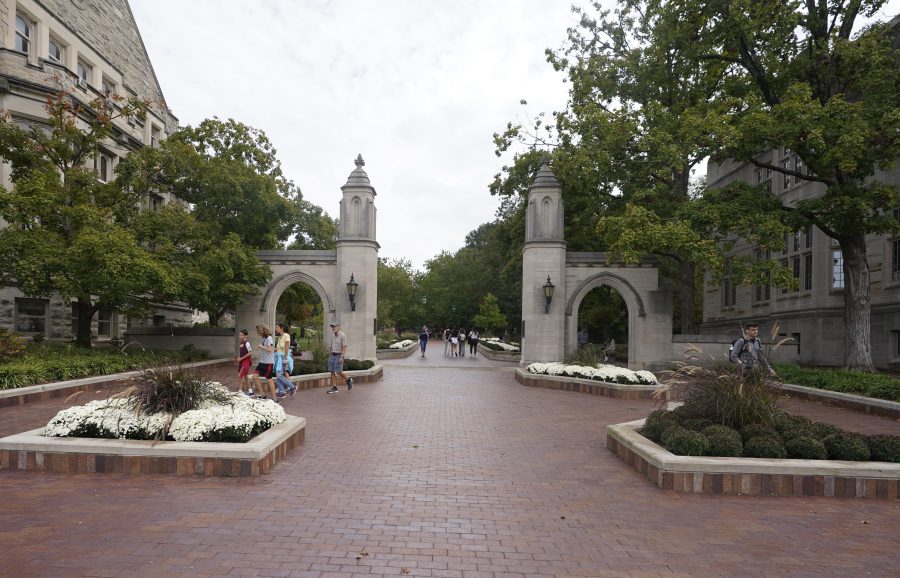INDIANAPOLIS — A group that previously engaged in expressive activity at the Bloomington campus of Indiana University filed a lawsuit with the ACLU of Indiana challenging the university’s new expressive activity policy.
According to the lawsuit, filed on Thursday in the Indianapolis division of the United States District Court for the Southern District of Indiana, the group argues that the university’s new policy is “substantially overbroad” and violates the First Amendment of the U.S. Constitution.
Starting at the beginning of August, the university implemented a policy that prohibited “expressive activity” on the university grounds between the hours of 11 p.m. and 6 a.m. The lawsuit specifically highlights Dunn Meadow, a 20-acre open area on the Bloomington campus, as a location that serves as a “public forum for expression on all subjects.”
Dunn Meadow was the home of a number of protests and other expressive activity that centered on the conflict in Gaza. According to previous reports, multiple days of protests led to law enforcement clashing with protestors.
The university’s new policy defines “expressive activity” as conduct that includes:
- Participating in speech or conduct protected by the First Amendment to the Constitution of the United States
- Communicating by any lawful, verbal, written, audio/visual or electronic means
- Participating in peaceful assembly
- Protesting
- Making speeches, including speeches of guest speakers
- Distributing literature
- Carrying signs
- Circulating petitions.
The new policy states that this kind of activity must take place between the hours of 6 a.m. and 11 p.m. Violating this new policy could result in citations, trespassing and/or interim suspension from campus. It could also result in suspension or exclusion from the university for student or suspension or termination of employment from the university.
“Each plaintiff wishes to engage in what the policy defines as ‘expressive activity’ during the hours between 11 p.m. and 6 a.m. but is prohibited from engaging in any expressive activity during this period even if the activity is not in any way disruptive,” the lawsuit reads.
The lawsuit provided the following examples of non-disruptive conduct, including:
- Standing silently either alone or with others
- Displaying a message on a sign or t-shirt
- Discussing a political issue with a companion.
“Plaintiffs are not able to engage in these forms of ‘expressive activity’ between the hours of 11 p.m. and 6 a.m. or are threatened with punishment to the extent that they engage in this activity,” the lawsuit reads. “This is causing plaintiffs irreparable harm for which there is no adequate remedy at law.”
The goal of the lawsuit is for a court to declare that the prohibitive activity outlined in the policy violates the First Amendment and enter an injunction that prohibits the enforcement of that portion of the policy.
“IU has approved a new policy that prohibits all expressive activity if it takes place between 11 p.m. and 6 a.m., even if the activity is not at all disruptive, such as standing silently, holding a sign, wearing a t-shirt with a communicative message or discussing current events with friends,” Ken Falk, the legal director of the ACLU of Indiana, said in a news release from the ACLU. “The protections of the First Amendment do not end at 11:00 p.m., only to begin again at 6:00 a.m.”
According to court documents also filed on Thursday, Kellie M. Barr, a United States Magistrate Judge for the Southern District of Indiana, recused herself in this case. Judge Mark J. Dinsmore has been assigned as the judge in this case.


